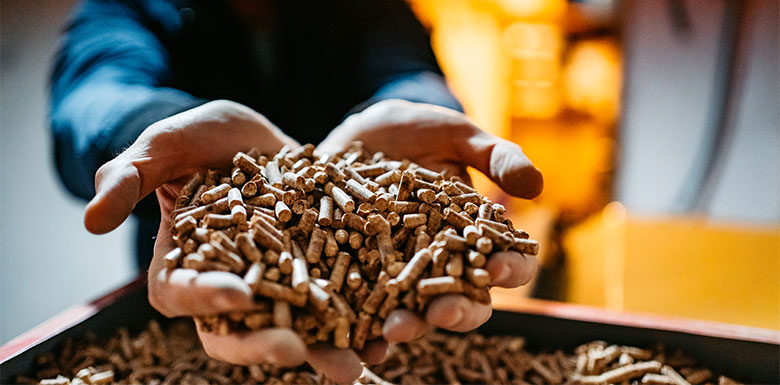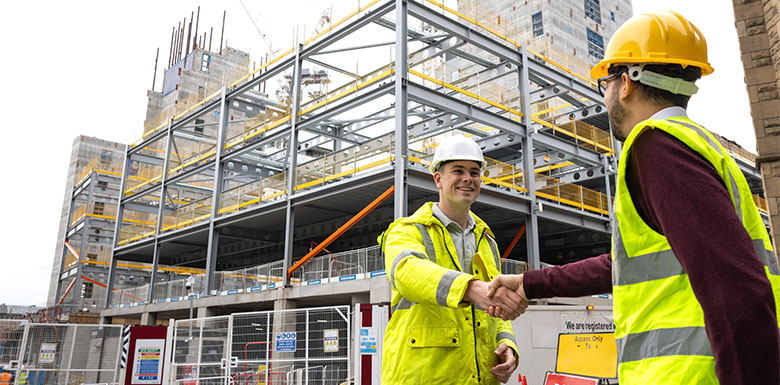How to become HETAS registered
 In this article
In this article
Most homeowners are constantly looking for ways to save on heating costs and keep their energy budgets as low as possible. And given the recent surge in popularity around stove installation, it’s fair to say that stove installation businesses face a bright future - provided they can demonstrate their professional credentials to potential customers.
And one of the best ways to do this outside of additional training is to join a recognised and respected not-for-profit specialist accreditation organisation, such as the Heating Equipment Testing and Approval Scheme (or HETAS, for short).
HETAS, a Which? Trusted Trader partner, is a well-regarded company and a smart way for stove installers to prove to homeowners that they’re the right firm for the job.
We spoke with HETAS CEO Bruce Allen to find out how HETAS regulations support both businesses and consumers by providing safe and clean heating in homes.
What is HETAS?
HETAS is a not-for-profit organisation, based in the UK, that is dedicated to reducing carbon emissions through expert advice, training, and evidence-based information when installing environmentally friendly heating systems.
As a UKAS-audited body, our remit for safe installation and work includes stove installers, service engineers, chimney sweeps, and stove retailers, allowing us to cover consumers’ stove installation and cleaning needs from start to finish.
What does HETAS do?
'The main role of our team is to assess different home energy businesses to ensure they comply with our stringent HETAS regulations and guidelines so that the public can be assured of a trusted, safe, and legally sound service.
'We have approved training centres throughout the UK to accommodate this, and we actively share the most up-to-date technical information where possible - not to mention checking that our installers undergo refresher training around HETAS regulations every five years.
'Alongside this, HETAS produces a list of appliances and fuels that have been checked and approved as safe, efficient and as environmentally friendly as possible, each and every year for our registered engineers to use. And we also work with national and local government bodies to reduce the impact of the energy sector on the air we breathe.'
How is the drive for alternative fuel sources changing the sector?
'A lot of things changed during the pandemic, and this was followed by inflation and the Ukraine war forcing prices up. Customers are seeking fuel independence and while they remain tied to traditional energy suppliers for much of their needs, a wood-burning stove can give them more flexibility.
‘ During autumn and spring in particular, when you don’t need the full central heating on, you can pop some wood on the stove to top up heat levels.
Market demand for wood-burning stoves has gone up 15-20% or more over the last year. But this also means that lead-in times are longer.
In September 2022, manufacturers were telling new clients they couldn’t provide anything until after Christmas. This is where consumers can be caught out, because an unscrupulous trader might claim to get you an alternative stove sooner. But this may not be the right product for you, and it could be installed unsafely or they might simply disappear with your deposit.’
How does joining HETAS benefit traders?
‘Simply put, we think there’s no better way to stand out against your the competition than by having the gold standard of HETAS approval stamped on your business.
‘We’re incredibly robust and rigorous in our assessments of applicants to ensure they’re familiar with the latest industry knowledge and can safely install systems in accordance with building regulations. When qualified with HETAS your customers can expect the services of an experienced and knowledgeable installer straight off the bat..
‘And should a customer not be satisfied with your work, HETAS also runs a complaints system that’s designed to handle any problems that may occur promptly, and professionally.
‘Not only that, but the government requires us to provide financial reassurance to customers should a job not meet building regulations and the original installer be unable to rectify it, benefiting those on each side of the transaction. Also, if we have any fear about fire or safety, we go out, inspect it and tell the installer to act if this is needed.’
Top tips for becoming HETAS registered
In order to become a qualified HETAS engineer, applicants must fully complete our application pack and have their work inspected by a qualified member of the inspection team. The process is the same for everyone, regardless of their experience, and consists of the following steps:
- Complete the application pack – all applicants must fill out the application pack and include ALL requested supporting documents alongside your completed form. Failure to supply any requested supporting documents will likely delay your application.
- Application review – the registration team will review your application and check that all necessary details have been filled in and the correct documentation provided. They may also check your business’s website and social media pages alongside this, should you have any.
- Pre-registration assessment – should the registration team deem your application suitable; HETAS will request a pre-registration assessment (PRA) be carried out for the inspection team. A HETAS inspector will contact you directly to arrange a time and date for the inspection to be carried out, to be completed at an address provided by you to the HETAS team.
- PRA review – upon the completion of your pre-registration assessment, your inspector will send their report to the inspections team. Should they deem your work compliant with HETAS standards, then your application will be returned to the registration team for a final quality check.
- Approval – after the last approval checks have been completed, the registration team will activate your registration and contact you to inform you that you’re now considered a registered HETAS engineer.
How hard is the HETAS course?
While not a complex application process, the criteria that must be met in order to qualify as a HETAS engineer are extensive and thorough. However, should you already be fully qualified as an installer, you will likely find the application process straightforward.
If you want more training before making your HETAS application, there are a range of HETAS-approved courses available that are run by the HETAS team, all of which will qualify you to make a HETAS application.
How does HETAS work with Which? Trusted Traders?
Being a HETAS member gives your customers the peace of mind that you have the first-class technical skills expected of all accredited installers. Our partnership with Which? Trusted Traders offers the added reassurance that your business procedures have been vetted by the UK’s consumer champion.
Displaying both logos gives customers double the confidence that they are in safe hands.
Not only that, but HETAS members can get a 50% discount on their endorsement fee for the first six months as a Which? Trusted Trader.
Alongside this, being a Trusted Trader can help smooth the HETAS application process, as your business has already fulfilled many of the stringent criteria that the scheme requires installers to have.




